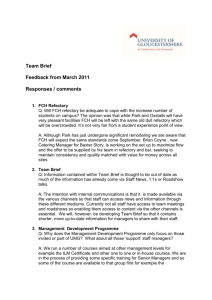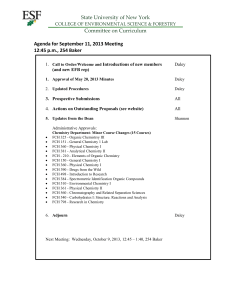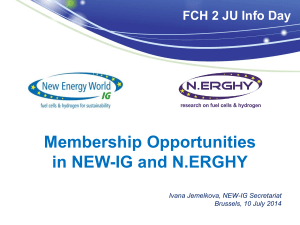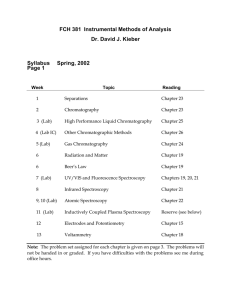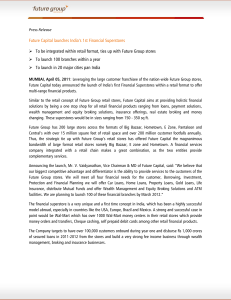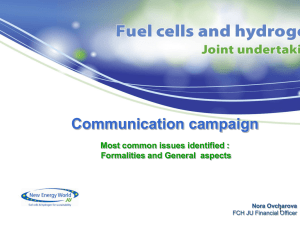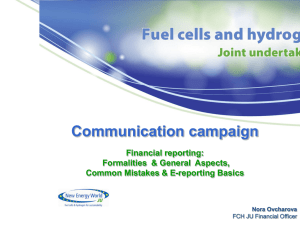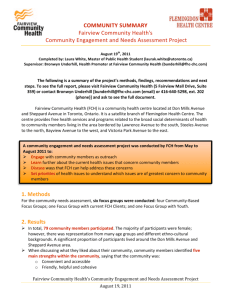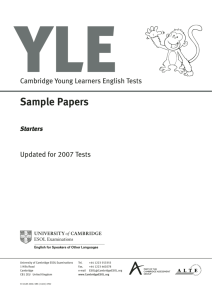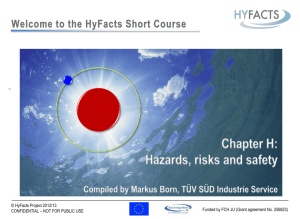Knowledge management
advertisement
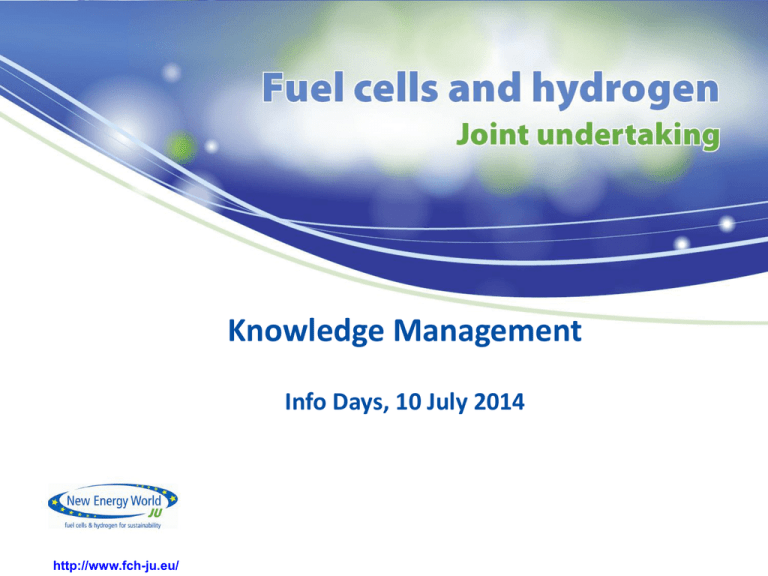
Knowledge Management Info Days, 10 July 2014 http://www.fch-ju.eu/ Knowledge Management aims firstly to establish where we are • Knowledge management (KM) is identifying, capturing, evaluating, compiling & sharing of an organisation’s information assets => here, technol-related information • KM process will facilitate measurement of technological progress being achieved via our programme: – At a project level we evaluate what the project is achieving compared to the project's objectives and targets – We are now bringing this to a programme level, to evaluate, quantitatively, how the FCH JU programme is contributing, through its portfolio of projects and their achievements, to advancing the technology towards commercialization => in accordance with the mandate of the FCH JU We are building on the picture of individual project achievements Metric e.g. Electrolyser efficiecny Individual project achievements 67.5% 2010 Project 3, 67% 67.0% 66.5% Aggregated metric, 65.5% 66.0% 65.5% 2010 Project 1, 65.0% 65.0% 2010 Project 2, 64.5% 64.5% 64.0% Actual value Project target To obtain a global view of what the programme is doing vs objectives Metric e.g. Electrolyser efficiecny FCH JU programme achievements 68.50% 68.00% 67.50% 67.00% 66.50% 66.00% 65.50% 65.00% 2010 2011 2012 Aggregated achievement 2013 2014 Programme 2015 target 2015 To achieve this we need harmonised data collection • Projects of similar type don’t always measure/collect same data HyLights Project 1 Project 2 Framework AIP requirements Vehicle operation lifetime Operation of the vehicles/total distance travelled MDBF (Mean distance between failures) Vehicle availability Tank-to-wheel-efficiency Other reporting - Cumulative performance data Hydrogen refuelled and consumed Refuelling time Safety incidents reporting Vehicle emissions – regulated emissions Customer satisfaction X X X X X X X X X X X X X X • Not all data collected by projects are KM-relevant X X X X X X Harmonised data collection process & implications • FCH JU is developing parameter templates per technology type, with key techno-economic indicators/data requirements for KM purposes • Staged data collection is envisaged: 1. Finished projects: internal (FCH JU) compilation of data based on data in final project report, to fill out template; “missing” data requested by FCH JU to coordinators via Excel format 2. Ongoing and future projects: project data reporting/collection done directly by the project via software interface (TEMONAS) • • Much of the data already collected systematically – we’re aiming for centralized data collection on averaged data Not all data collected within the projects is required/KMrelevant All of this in the context of wider objectives • Engaging support for the technology: by confirming the progress of the European FCH industry and its relevance in Europe’s energy future • Providing input to policy-making: identifying and justifying areas warranting policy support • Gauging our position in the worldwide industry: enabling us to capitalize on strengths • Orient FCH JU programme: identifying gaps that require addressing to meet objectives/targets TEMONAS will be main means for external data reporting • TEMONAS (TEchnology MONitoring and ASsessment tool) – Tool developed via FCH JU project (delivered end 2013) – Allows centralised entry, treatment and analysis of data from all FCH JU projects in a secure environment – Facilitate creation of a programme-level picture to evaluate technological progress, achievements of the programme (vs MAIP, AIP, international SOTA), gaps, support needs – First step will be pilot with sample of project(s) using external (webinterface) data entry – Simultaneously, working on in-house data population (MAIP/AIP targets, industry benchmark) – Implementation of pilot before end-year, and conducting of first analyses, working towards full implementation & operation for 2015 Thank you! Contacts: Suzanne Shaw – Knowledge Manager suzanne.shaw@fch.europa.eu Extra slides FCH JU Knowledge Management Process Studies Projects JRC PO (internal, web) External Publications IPHE IEA Personal communications USA, Korea, Japan, EU Clean Room Project monitoring Portfolio monitoring Analysis & Interpretation Consolidation Reports, Presentations Other analytical tools Programme metrics TEMONAS Aggregated results, benchmarking Confidential In-house Policy Input EC Progress monitoring IG Programme steering RG MAWP, AWP SRG General Knowledge sharing SC Website (update end-2014), PRD, presentations All/ Public

